| '"After all the to-ings and fro-ings and all the kerfuffle, American democracy is strong," -UK Prime Minister Boris Johnson on his reaction to the latest impeachment trial
Welcome to "Face the Nation"'s Five at Five newsletter. Scroll down for your five takeaways from today's broadcast of "Face the Nation" with Margaret Brennan on CBS. Did someone forward you this? Sign-up at cbsnews.com/email. 1. BoJo + Biden = "Encouraging" special relationship 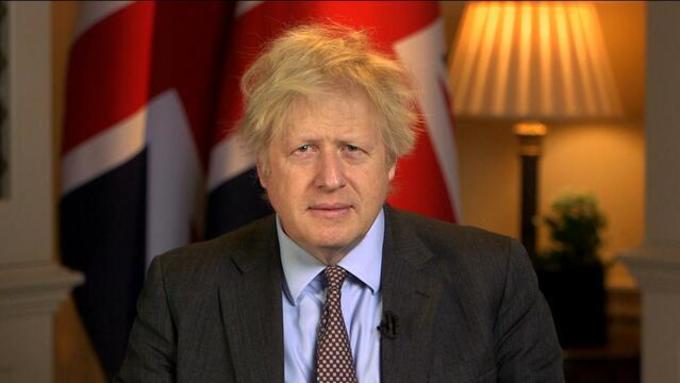 British Prime Minister Boris Johnson said Sunday in his first interview with U.S. media since 2019 that early steps taken by President Biden on issues like foreign policy and climate change are "incredibly encouraging" for relations between the U.S. and the United Kingdom. What Johnson said: "There's been some important developments in the way the U.K., U.S. thinking has been coming together in the last few weeks, and particularly on issues like climate change, on NATO, on Iran, but above all, on the ways that the U.S. and the U.K. are going to work together to deal with the environmental challenge that faces our planet. And there, I think some of the stuff we're now hearing from the new American administration and from the new White House is incredibly encouraging. And we want to work with the president on that." Why it matters: PM Johnson was among the first world leaders to extend congratulations to Mr. Biden and Vice President Kamala Harris after they were declared the winners of the November presidential election. The president also spoke with Johnson three days after he was inaugurated, with Mr. Biden conveying "his intention to strengthen the special relationship between our countries and revitalize transatlantic ties," according to a summary of the call from the White House. Johnson told "Face the Nation" he is "delighted" to have a good relationship with the White House and said he's had "fantastic conversations" with Mr. Biden. The U.K. prime minister also said he's "thrilled" Mr. Biden adopted the slogan "Build Back Better," particularly when it comes to addressing the coronavirus pandemic, though Johnson joked he used it first. 2. Walensky warns B117 variant could be dominant strain by March 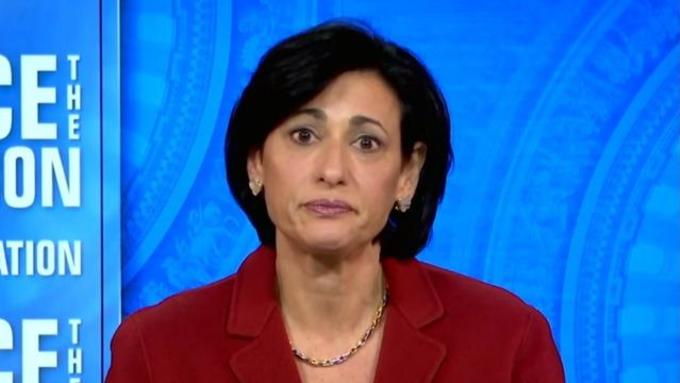 Dr. Rochelle Walensky, director of the Centers for Disease Control and Prevention (CDC), predicted Sunday on "Face the Nation" that a new strain of the coronavirus, first identified in the United Kingdom and has since been detected in the U.S., may be the "dominant strain" here by the end of March. What we asked: Should areas of this country where there is B.1.1.7 still have in-person classes? What Walensky said: "There are over 1,000 B.1.1.7 cases that we have documented in this country in over 30- in 39 states. We know now that- or we estimate now that about 4% of disease in this country is related to B.1.1.7. And we have projections that it may be the dominant strain by the end of March. That said, the amount of disease in school is very much related to the amount of disease that's in the community. So the work that we do to decrease the amount of disease in our community is- is that much more benefit to getting our schools reopened." Why it matters: Public health officials warn the U.K. variant is more transmissible and argue the new strain, as well another identified in South Africa and a third from Brazil, underscores the need for the American people to get quickly vaccinated. Walensky said pharmaceutical companies are adjusting their science to neutralize the B.1.1.7 variant, and the CDC is watching the epidemiology with people who have already received their coronavirus vaccines. 3. Gottlieb urges "bespoke" effort to get vaccine to more communities 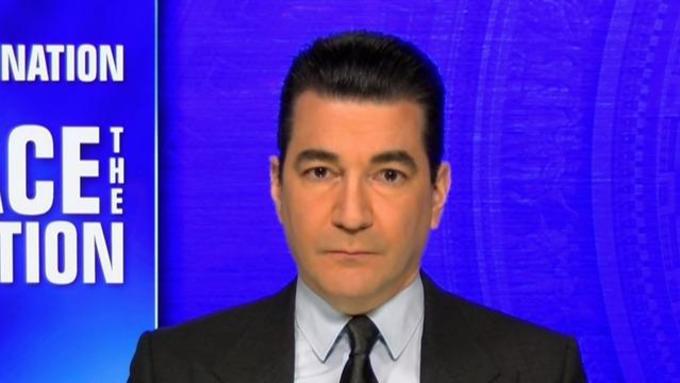 Former Food and Drug Administration (FDA) Commissioner Dr. Scott Gottlieb suggested to Margaret Brennan Sunday the Biden administration undertake more "bespoke" efforts to ensure coronavirus vaccines are getting into the arms of Americans in underserved communities. What we asked: I know you agree with the CEO of Rite Aid there that the private sector should take a more direct role in more of this process. Do you see the Biden administration eventually getting there? What Dr. Gottlieb said: "I would be taking the federal resources and the state resources and creating more bespoke solutions that can be used in some of the hard-to-reach environments, some of the underserved communities whether you can move mobile vans into those communities, try to work through community groups, local providers, church groups, community health centers to try to get harder-to-reach populations vaccinated. That's a very difficult effort. It's expensive. It's a bespoke effort. It's a hands-on effort. I'd be marshaling the federal resources towards that kind of a mission and letting Walmart work off the easy demand and Rite Aid." Why it matters: Gottlieb, who led the FDA for nearly two years under former President Donald Trump, said the new administration is "taking an all-of-the-above approach" to vaccine distribution, from supporting vaccination sites to sending vaccine doses directly to retail pharmacies. But he cautioned against devoting too many federal resources to mass vaccination sites, as Americans going there to get their COVID-19 shots can likely be served by pharmacies at Walmart, Rite Aid, CVS and Walgreens. 4. Can I get a witness? Neguse says "not necessary" 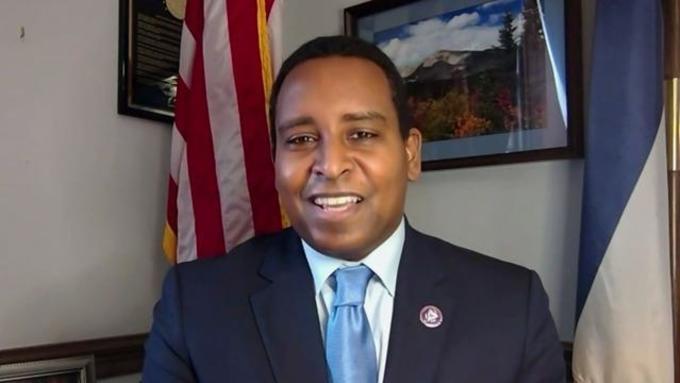 Congressman Joe Neguse, a Democrat from Colorado who served as a House impeachment manager in the trial against former President Donald Trump, said Sunday that calling witnesses to testify in the proceedings would not have changed the minds of Republican senators who ultimately voted to acquit Mr. Trump. What we asked: Why did you back off the request for witnesses? What Neguse said: "Whether it was five more witnesses or 5,000 witnesses, it is very clear that the senators who voted to acquit on a technicality, which was the jurisdictional argument, that we had successfully defended early in the trial and actually had convinced a majority of the Senate, including Republicans, that the Senate did have presidential jurisdiction to move forward. It would not have made a difference to those senators." Why it matters: The Senate on Saturday evening voted to acquit Mr. Trump on the impeachment charge of incitement of insurrection, though seven Republicans joined with all 50 Senate Democrats in finding him guilty for his role in the January 6 assault on the U.S. Capitol. While the acquittal was expected given the 67-vote threshold to convict the former president, the proceedings were thrust into chaos earlier Saturday after the Senate voted to allow witnesses to be called. 5. Take a listen: American Federation of Teachers President 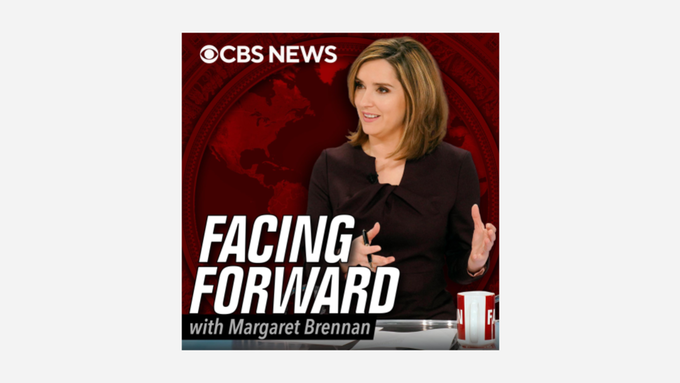 In this latest episode of Facing Forward, Margaret Brennan interviewed Randi Weingarten, American Federation of Teachers (AFT), president of the nation's second largest teachers union, about what it will take for teachers to feel safe to resume in-person lessons and how schools will help children catch up after what seems to be a lost year for many. Listen to their conversation here.
|
No comments:
Post a Comment